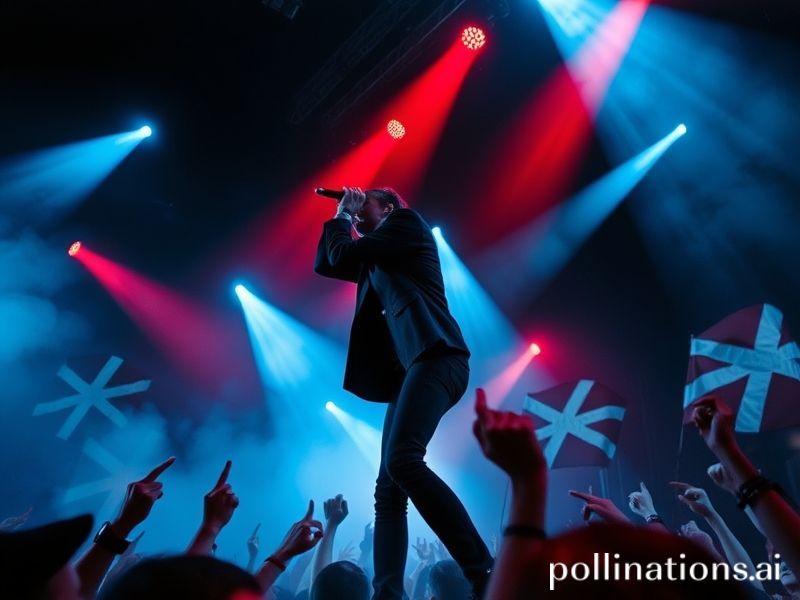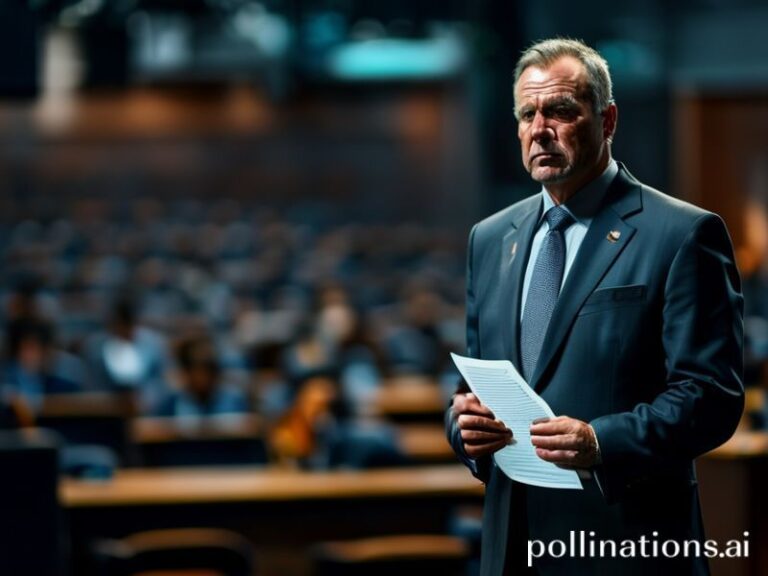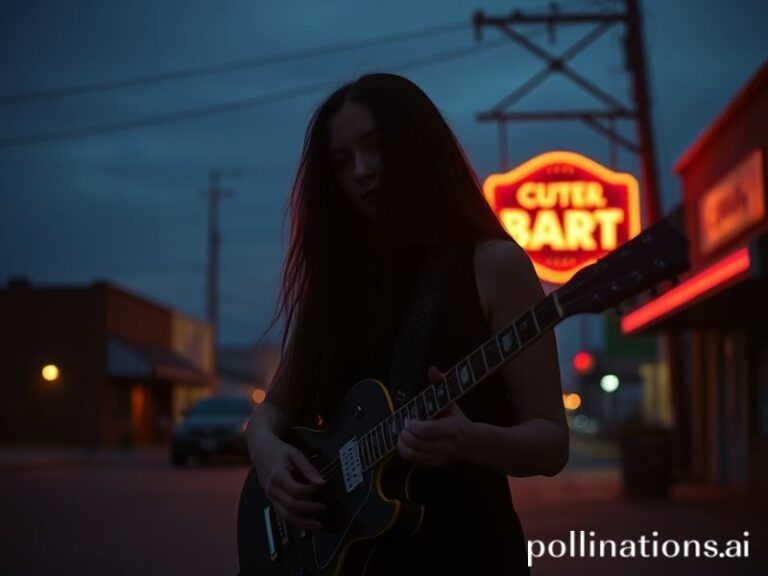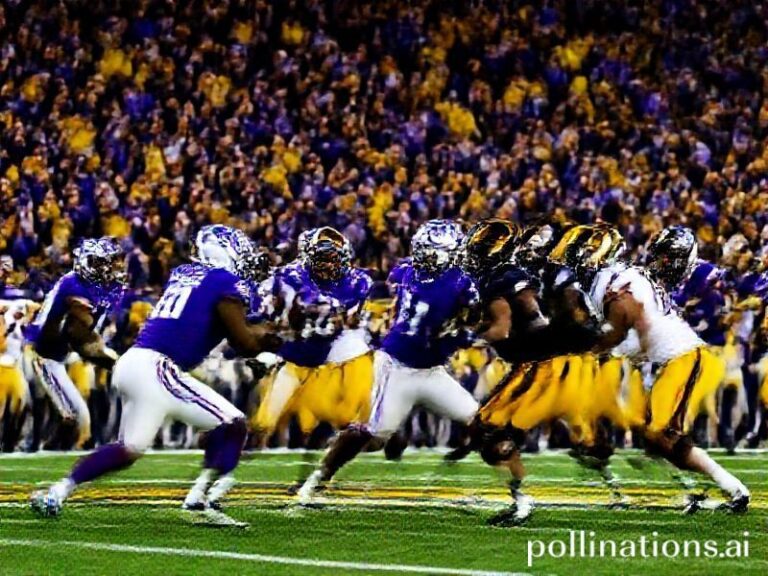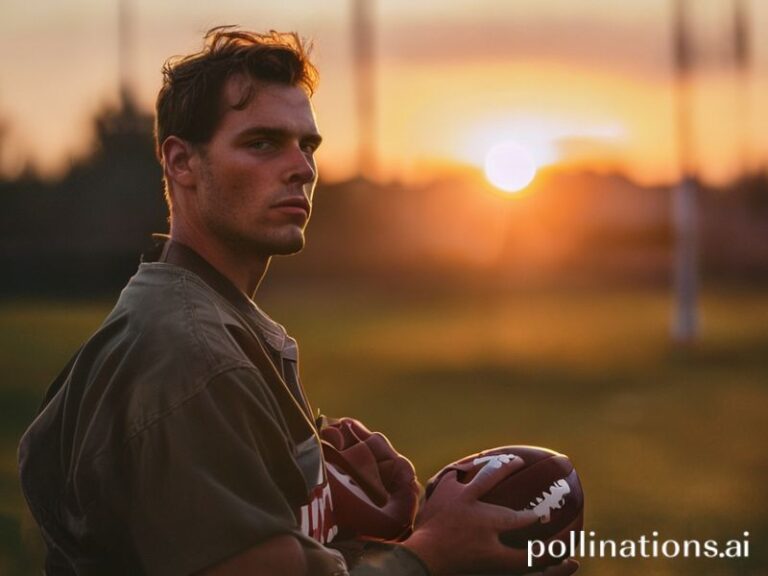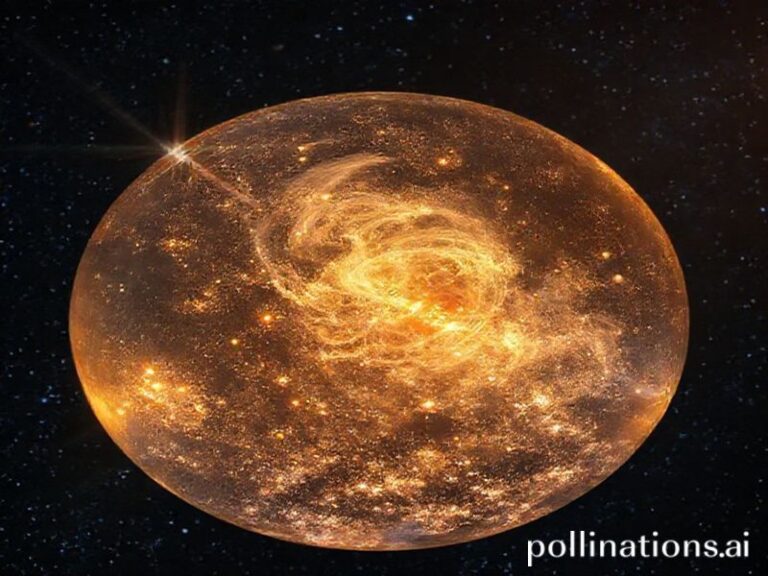Glasgow Hosts Global Funeral Pop: My Chemical Romance Sells Nostalgia by the Decibel
My Chemical Romance Returns to Glasgow: A Global Funeral for the Living
GLASGOW—On a Tuesday night so damp it could’ve been sponsored by a British tear-duct lobby, 13,500 black-clad pilgrims descended upon the OVO Hydro. Their mission: to watch a band that once made suburban teenagers everywhere believe eyeliner was a personality reboot its corpse for one last profitable twirl. From Jakarta to Juárez, the same mascara-stained demographic—now pushing thirty-five, balding, and burdened with mortgages—simultaneously refreshed Ticketmaster pages in seventeen time zones. The international takeaway? Grief has gone multinational, and nostalgia is the only export the West still manufactures without Chinese supply-chain hiccups.
For the uninitiated (congratulations on your emotional stability), My Chemical Romance split in 2013, leaving behind a generation convinced eyeliner was a viable retirement plan. Their reunion tour, delayed by a pandemic that made apocalypse chic feel redundant, finally reached Scotland’s rain-soaked second city. Glasgow, a place where even the pigeons look like they’ve read Kafka, proved the ideal host: cheap enough for Berlin art students, grim enough for New York poets, and drunk enough for Australians on gap years to forget their own country exists.
Inside the arena, the geopolitical implications were as subtle as a power chord. The merch queue alone resembled a miniature United Nations where delegates traded vintage band tees like Cold-War defectors swapping passports. A Brazilian software engineer paid a week’s salary for a hoodie that read “I’m Not Okay,” apparently unaware the slogan also doubles as modern civilization’s default status update. Meanwhile, a Japanese tourist live-streamed the opening riff of “Helena” to 40,000 followers who woke up specifically to feel worse about their Tuesday. Somewhere in a Silicon Valley boardroom, a product manager updated the KPI for “global despair monetization” and quietly booked therapy.
The setlist—a greatest-hits parade that doubled as a suicide-prevention hotline set to power-pop—proved that tragedy ages like milk left in Chernobyl. Gerard Way, now 46 and dressed like a Victorian vampire who discovered carbs, belted lyrics about death with the enthusiasm of a man who has since learned estate planning is more effective than screaming. Yet every time he howled, “I’m just a man, I’m not a hero,” thousands roared back in seventeen languages, united in the delusion that off-key solidarity counts as geopolitical resistance. NATO should be so cohesive.
From a macroeconomic standpoint, the tour is a masterclass in weaponised millennial melancholy. Ticket prices rivaled the GDP of small island nations; the carbon footprint of jet-setting sadness could melt another glacier, but at least the resulting sea-level rise will give future emo kids deeper metaphors. Meanwhile, Spotify streams spiked so hard the algorithm briefly mistook teenage angst for a crypto-currency. Somewhere, an economist updated a white paper titled “Goth Futures: Hedging Against Existential Dread” and felt disturbingly optimistic.
And yet, cynicism curdles when confronted by 13,500 voices screaming “Welcome to the Black Parade” in unison. For three minutes, Glasgow’s sectarian football chants were replaced by a hymn about dying young, proving humanity can synchronize its nihilism more efficiently than its climate policy. A Syrian refugee in the front row filmed the chorus to send home; her caption simply read, “Still alive.” The comment section filled with heart emojis from strangers who will never meet, united by the shared understanding that the parade eventually ends, but the marching continues.
As the encore faded and the crowd spilled into the Clyde-side drizzle, the international implications crystallized like cheap glitter in a gutter. Every continent now possesses a generation defined not by what they built, but by what they survived: recessions, pandemics, endless reboots. My Chemical Romance didn’t save anyone; they merely provided a soundtrack loud enough to drown out the news. And in that shared, slightly ridiculous communion, we remembered that the world is ending—but, crucially, not tonight. Tonight we’re just a bunch of aging kids in eyeliner, pretending the apocalypse has a good beat and you can dance to it.

